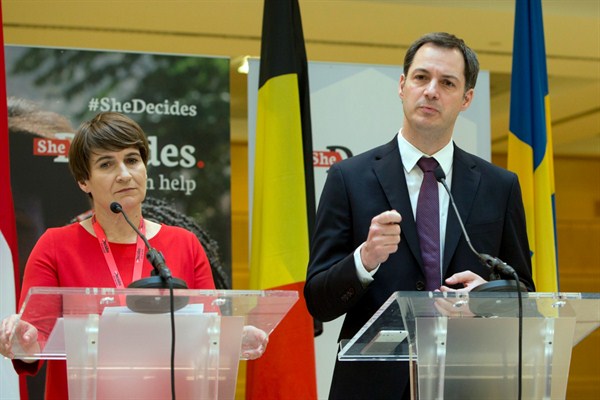Three days after his inauguration, U.S. President Donald Trump issued a memorandum reinstating the Mexico City Policy, which was first adopted during the Reagan administration to block recipients of U.S. aid from providing abortions or abortion counseling. While family planning experts have consistently noted the harmful effects of the policy, known as the “Global Gag Rule,” they also warned that the Trump administration’s version is much worse, as it applies to a wider range of U.S. global health assistance. Other donors have tried to step up and provide aid that would otherwise be lost as a result of the policy. In June, Sweden’s aid agency said it would stop providing support to reproductive and sexual health programs run by groups that comply with the rule. In an email interview, Scott L. Greer, professor of global health management and policy at the University of Michigan School of Public Health, and Sarah Rominski, research assistant professor in the Department of Obstetrics and Gynecology at the University of Michigan Medical School, discuss the effects of the policy and how the world has responded.
WPR: What led to the adoption of the Mexico City Policy under then-President Ronald Reagan, what specifically does it stipulate, and how has it been implemented in the past?
Scott L. Greer: The adoption of the various iterations of the policy has been part of the general Republican approach to abortion. Legislation already prohibited the use of U.S. foreign aid to finance abortions. Reagan added, by executive order, a prohibition on the use of U.S. foreign aid to finance organizations that provided referrals and education on abortion, advocated for abortion rights, or otherwise assisted with abortion, regardless of whether such procedures involved U.S. aid. Under the policy, recipients of U.S. aid must promise “not to promote abortion as a method of family planning.” Since then, the policy has been part of partisan politics: incoming Democrats revoke it and Republicans reinstate it.

